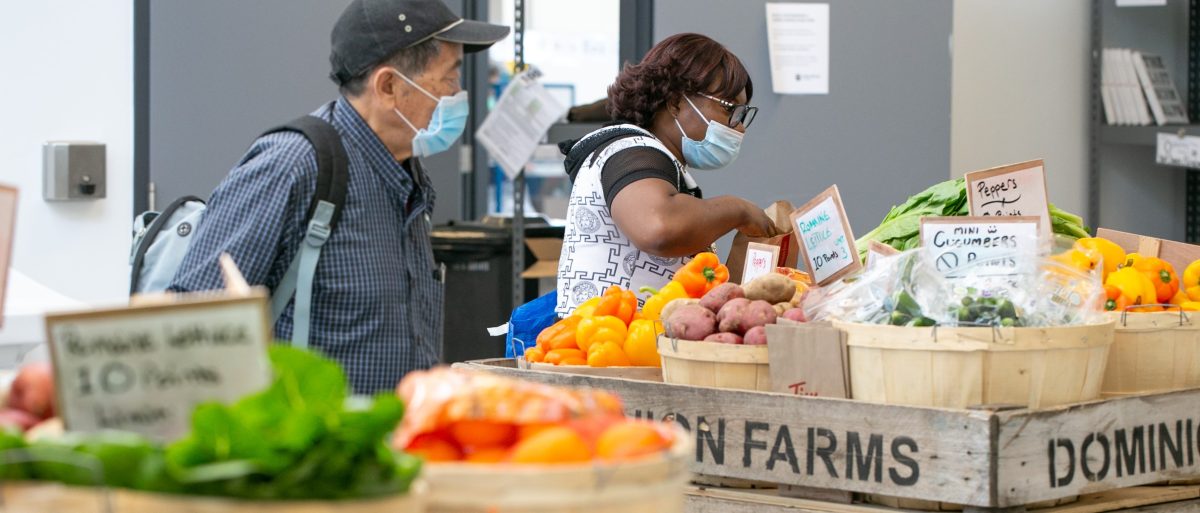
By Daily Bread CEO, Neil Hetherington
Earlier this week, Food Banks Canada released a startling statistic – today, 23% of Canadians report eating “less than they should” due to rising inflation. Statistics Canada has also released new data this week, reporting that one in five Canadians expect to use a community food program in the next six months if prices keep rising. These record numbers match what we are seeing at Daily Bread Food Bank.
Pre-pandemic our food bank network served approximately 60,000 client visits per month, that number has risen dramatically to 160,000 per month, and is forecasted to hit over 200,000 this year. Volunteers and staff across the city have risen to the challenge and now we are sending out approximately 100,000 pounds of food each day, ensuring that every client who visits a food bank receives three days of food every week.
How long can this trajectory last? At what point does the system collapse? When will interventions take place to tackle the systemic reasons behind the growing dependence on food banks?
Through these difficult questions I refuse to turn my back on hope. In fact, throughout the pandemic hope has been what we all needed to cling to. At first, hope that a vaccine would be developed, then hope that we would return to normal, and finally hope that we would build back better. Well…now we are here – so let’s never forget that we wanted to do things differently.
But are we building back better? Or will 2 million annual food bank visits in the City of Toronto become our new normal?
The statistics are stark and clear. There is a lack of resilience in the community to acute shocks like the pandemic and inflation. In broad strokes, this is caused by a lack of decent affordable housing, precarious employment, and a lack in income supports like the Ontario Disability Support Program (ODSP). A single person on ODSP receives $1169 per month, unchanged since 2018, and clearly insufficient to survive on without charitable backing. Those on Ontario Works are in even deeper poverty. Even those whose income is derived from full time employment struggle to make ends meet.
So why will I cling to hope? Because today, issues like social assistance, income levels and affordable housing are kitchen table conversations, and these conversations can lead to action and become the backbone of policy development for all parties and all levels of government.
No matter what the number of client visits become, Daily Bread Food Bank will be here for the city, meeting the emergency needs of tens of thousands of families and individuals experiencing food insecurity. But being here for the city also means that we will not be shy about advocating for long-term, systemic change to end the root cause of hunger – poverty.